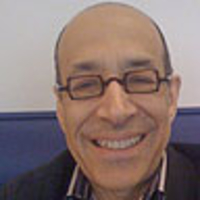
Read other takes on Gates' arrest from Daily Beast writers.
Memory can heal and haunt. All of us are the manufactured sums of the tribal stories we’ve absorbed, that were handed down to us as implacable lessons, and that we overheard as children, tracking the whispers of anxious adults in the night. Barack Obama is. Henry Louis Gates Jr. is. Benjamin Netanyahu is. You and I are.
When Gates saw the cop enter his house, he suddenly became a proxy for history.
That’s the teaching moment of the Gates incident. His emotional explosion was, I think, less about the immediate incident and the behavior of that particular cop. It feels to me like a very personal reaction to a long history of police terrorism of black Americans, resulting in an eruption that appears to be disproportionate to the circumstances.
In that sense, Gates’ reaction struck me as literary and historical, a mis en scene that could have come straight from a Mamet play or, going back earlier, a moment of concentrated emotional intensity from Odets and his compadres in the Group Theater.
Were it actual theater, in fact, a reviewer assessing the performance might write that when Gates saw the cop enter his house he suddenly became a proxy for history. He was the embodiment of—and revenge vessel for—all those helpless and demeaned black Americans bullied and abused by racist authority figures. And he reacted as the heir of great pain. The cop was merely objectified at that point. We can’t escape the whispers. Art Spiegelman often says that his father told him to stop drawing and learn how to pack a suitcase.
When we react both as individuals and as inheritors, the context suffers, overwhelmed by what we bring to it. That’s not the teaching moment Obama had in mind, though. The heuristic opportunity he was talking about is a PBS narrative, a national lesson about racial profiling, the lingering stain of racism, and how America still has work to do. And yes, those are real dimensions of our culture that must be dealt with.
But the deeper issue is how our tribal baggage defines us. That was a big part of Obama’s now-famous Philadelphia speech. What he said then about Reverend Wright is, in some Möbius-strip irony, applicable to Henry Louis Gates Jr., who is nine years older than Wright:
“For the men and women of Reverend Wright's generation, the memories of humiliation and doubt and fear have not gone away; nor has the anger and the bitterness of those years. That anger may not get expressed in public, in front of white co-workers or white friends. But it does find voice in the barbershop or around the kitchen table.”
It’s not easy—and some would argue passionately, not always desirable—to put sufficient distance between ourselves, history, and the world of now to look at a set of circumstances with objectivity.
Obama failed to do that; when he said that the Cambridge police “acted stupidly,” he was doing exactly what he criticized Reverend Wright for. He defaulted to the stereotype of the racist cop. Obama said that Wright “…spoke as if our society was static; as if no progress has been made; as if this country…is still irrevocably bound to a tragic past.”
Later, when the president said should have “calibrated” his remarks differently, he was really saying that he shouldn’t have said what he was feeling deep inside. Which makes this a teaching moment for him, personally, as much as for the rest of us.
Adam Hanft is a decoder of the consumer culture and our branded planet. He blogs for The Huffington Post and FastCompany.com. He is also the co-author of Dictionary of the Future and is founder and CEO of the marketing and branding firm Hanft Raboy. Follow him at Twitter.com/hanft.






